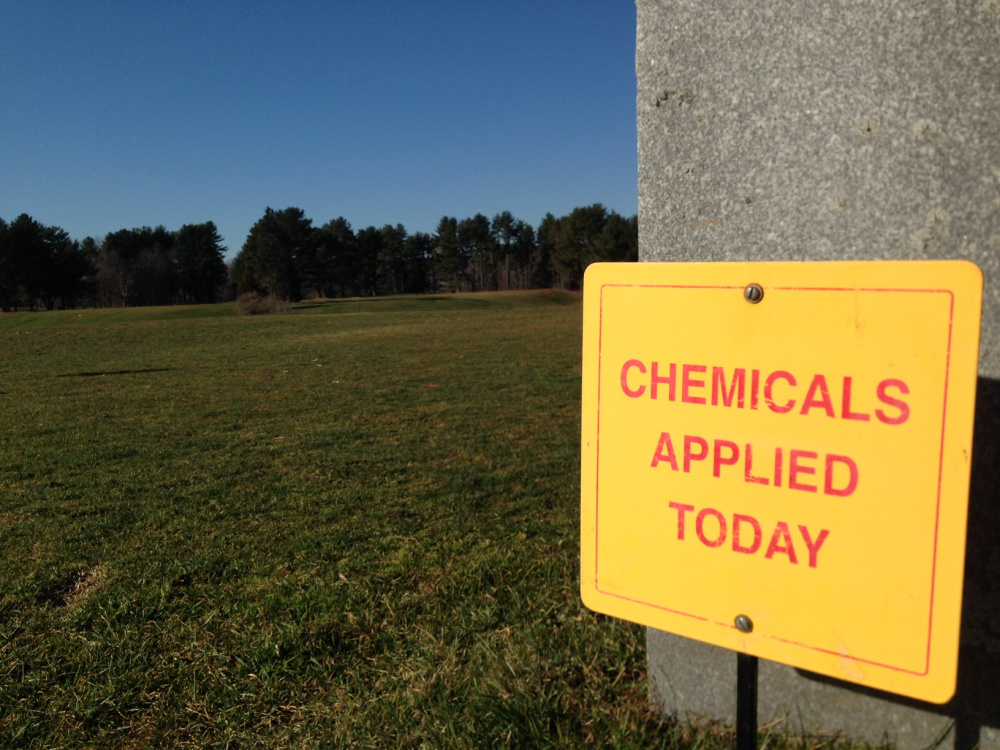It’s no secret that Portlanders are environmentally conscious.
We compost so much that we support two for-profit composting companies. We regularly leave our cars behind to take the bus, walk and bike (even in winter). And we undertook a successful campaign in 2014 to preserve park space.
Portland was one of the first cities to sign the U.S. Conference of Mayors Climate Protection Agreement and was named a top Green City by Organic Gardening magazine. The city has a waiting list for spots in its organic community gardens, and Portland schools are a state leader in sourcing Maine food.
A host of city policies support residents’ respect for the natural world, including a fee for single-use bags, a no-idling ordinance, a ban on Styrofoam containers and a fine for cigarette littering.
Yet there is one area where the city falls far short of residents’ eco-expectations, and that is the city’s lack of regulation surrounding synthetic pesticides and fertilizers.
In a city where feet (or inches, in the case of my downtown home) separate buildings, this lack of regulation gives residents no protection from the handful of neighbors who haven’t kept up with the independent science concerning synthetic pesticide toxicity. This small group is endangering the health of large numbers of people, pets, pollinators and the bay when they apply cosmetic lawn pesticides that inevitably drift onto surrounding properties and run off into Casco Bay.
Such runoff is well documented by Friends of Casco Bay, which regularly finds lawn pesticides and algae blooms caused by synthetic fertilizer in the waters surrounding Portland. Numerous residents suffer garden damage, witness bees die and watch pesticides drift in through open windows when neighboring properties are sprayed.
Equally concerning to Portland residents is that the city itself – despite decades of citizen complaints – continues to use synthetic “weed-and-feed” products on athletic fields, and RoundUp brand herbicide on Old Port and Arts District sidewalks and select areas of parks and trails.
Last year, the city budgeted $15,000 just for RoundUp, whose active ingredient is listed as a probable carcinogen by the World Health Organization. Studies link it and other pesticides to male infertility, Parkinson’s disease, autism, kidney failure and many other disorders.
The largest use of pesticides on city-owned land occurs at Riverside Golf Course, which budgeted $25,000 for pesticides in 2015.
During 2014 – the most recent year for which usage numbers are available – the course applied 191 pounds of dry, undiluted pesticides and more than 125 gallons of liquid, undiluted pesticides sold under 24 brand-name formulations. These synthetic chemicals include four pesticides detected in Casco Bay, at least five pesticides implicated in bee die-offs and 11 fungicidal pesticides, nearly all of which are linked to cancer.
This yearly load of pesticides – and an unknown quantity of synthetic fertilizer – is applied to the greens, tees and fairways even though in 2012, the Portland Press Herald reported that the number of golfers has declined significantly in recent years, resulting in losses that cost taxpayers $200,000 between 2001 and 2012.
In response to Portland’s lack of synthetic pesticide and fertilizer regulation, a group of citizens banded together to form Portland Protectors. In August, the group submitted to the City Council an ordinance that would ban the use and sale of synthetic landscaping pesticides and fertilizers within the city.
After Toronto banned synthetic pesticides in 2003, the number of landscaping companies doing business in the city grew 30 percent.
Portland’s lack of synthetic land-care chemical regulation is out of step with other progressive, environmentally friendly communities. Ogunquit has such an ordinance, South Portland is crafting one and Harpswell is strengthening its existing law.
Across the country, cities including Seattle, Boulder, Colorado; San Francisco and Portland, Oregon, have enacted ordinances restricting synthetic pesticide use. Here in Maine, Eldridge Hardware stores swapped synthetic pesticides for organic products and watched sales rise 30 percent in its lawn care department.
Restricting synthetic lawn chemicals is good for business, it’s good for the environment and it’s good for citizens.
It is time for Portland to look at the independent science, follow common sense and enact a ban on synthetic lawn-care pesticides and fertilizers. If you agree, please let your city councilors know that you want a comprehensive pesticide ordinance in Portland.
Send questions/comments to the editors.


